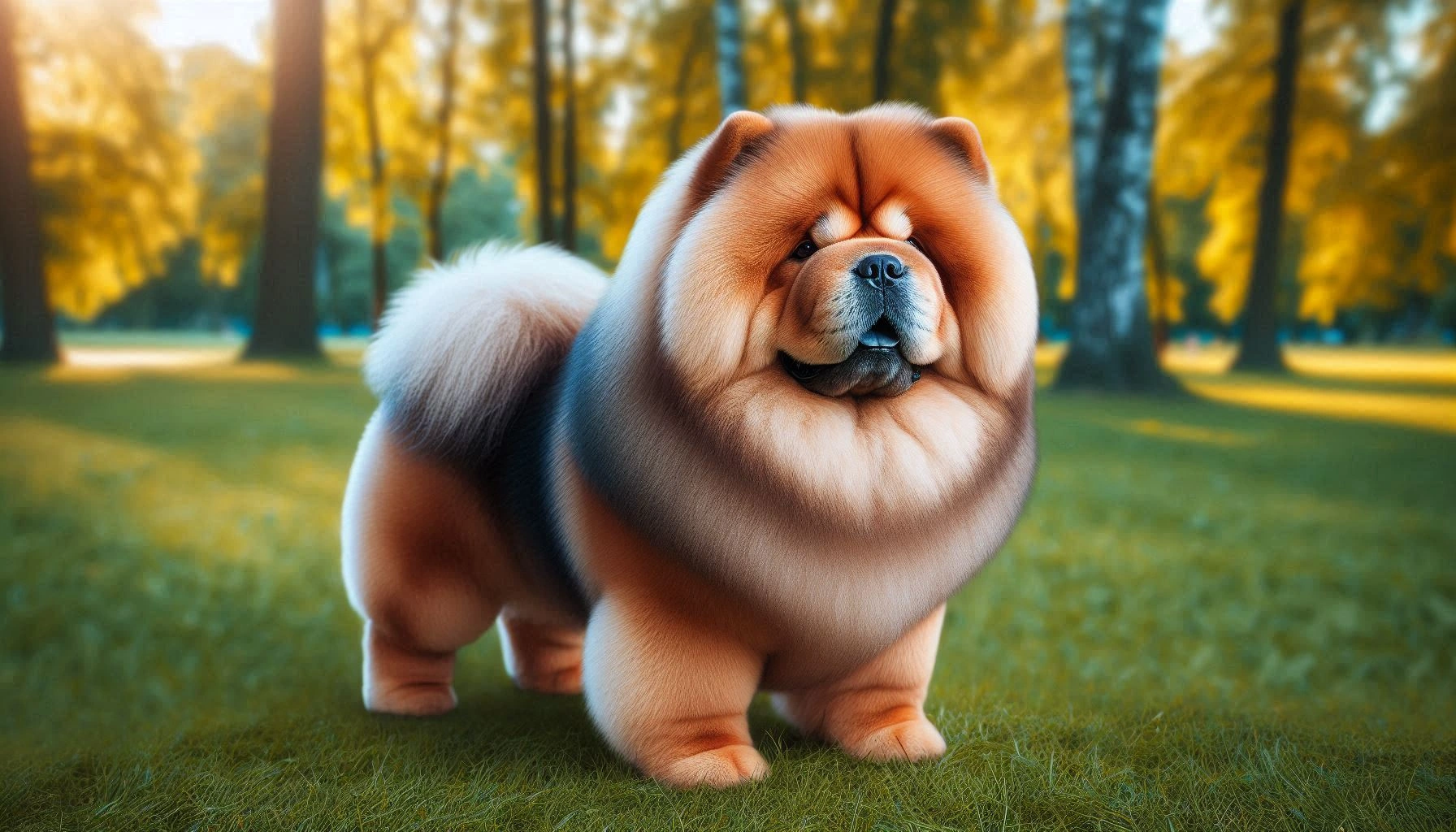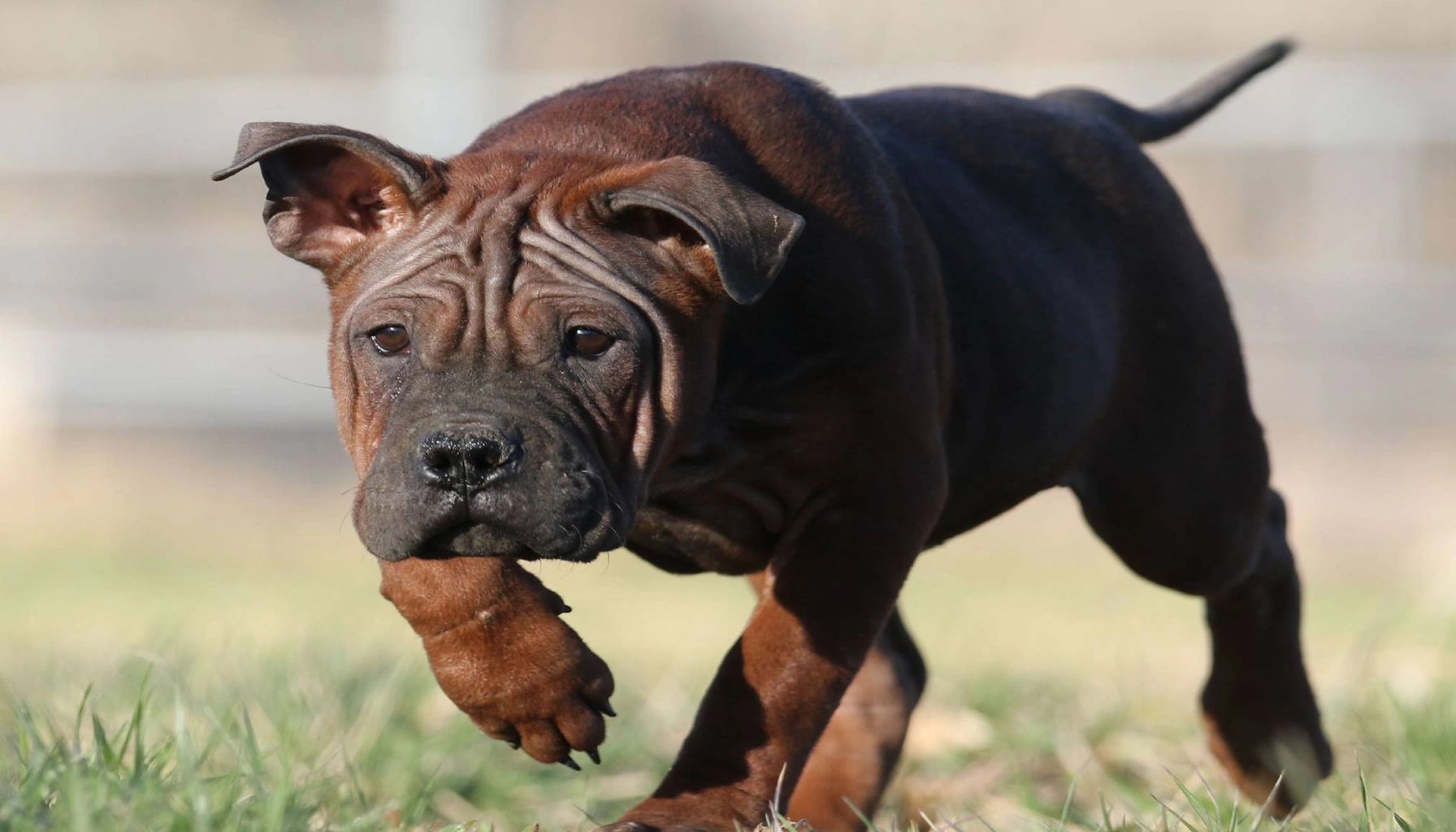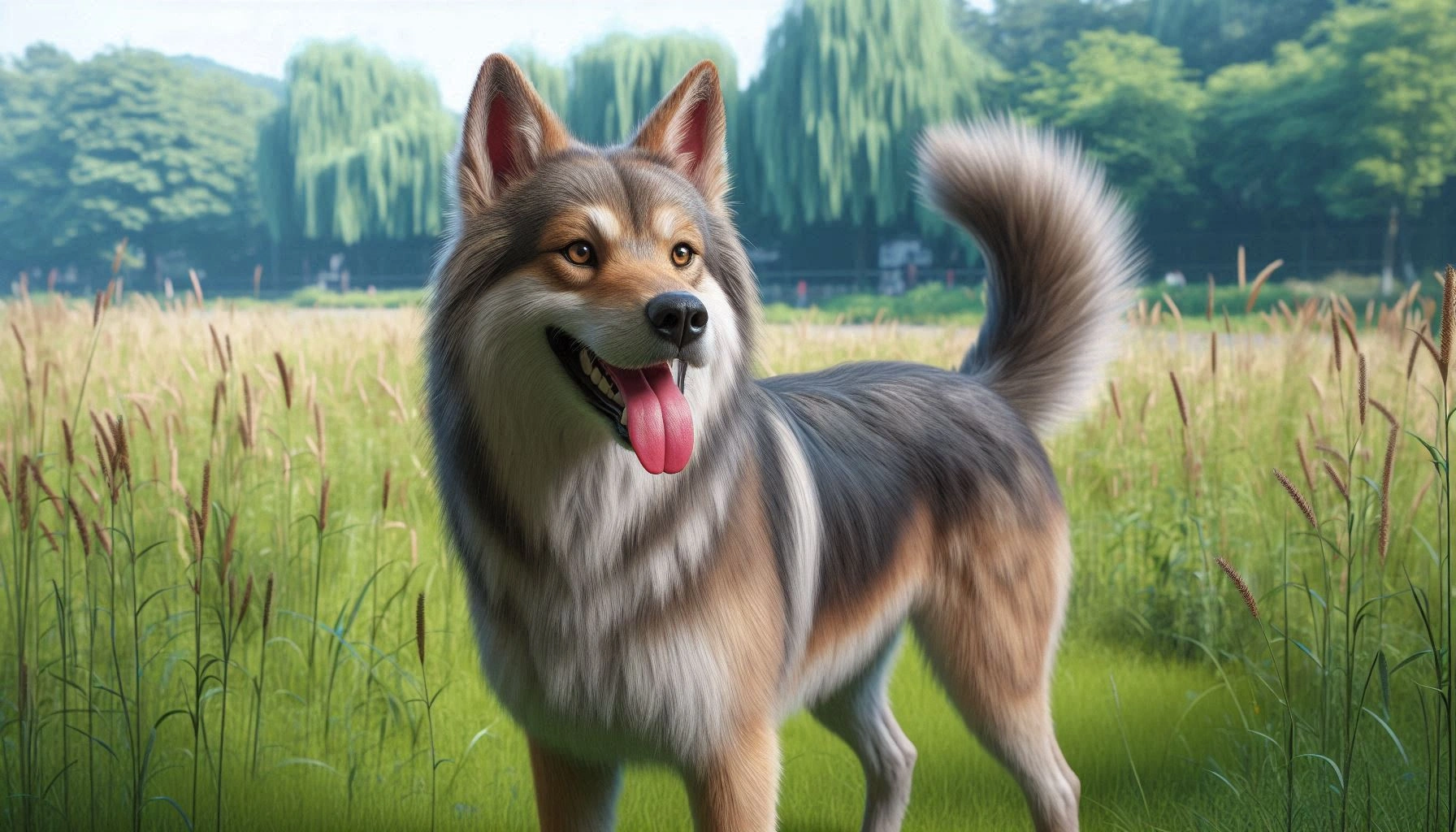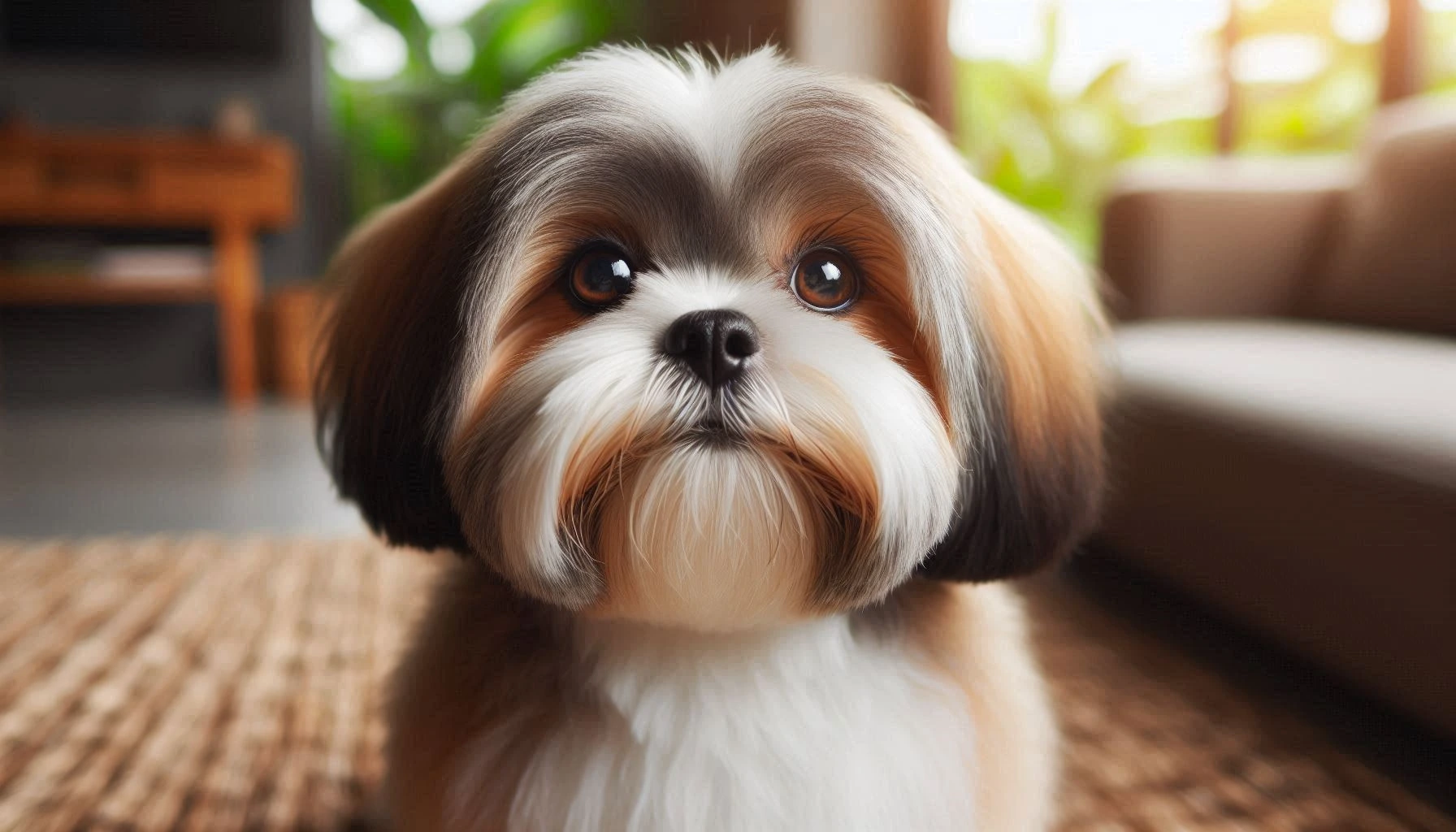Table of Contents
Japanese Chin Dog Breed
The Japanese Chin dog breed is a charming and elegant toy breed known for its distinctive appearance and delightful personality. This breed is popular among dog owners for its compact size, luxurious coat, and affectionate nature. Whether you’re a seasoned dog enthusiast or considering your first furry companion, the Japanese Chin’s unique characteristics make it a breed worth exploring.
History and Origin
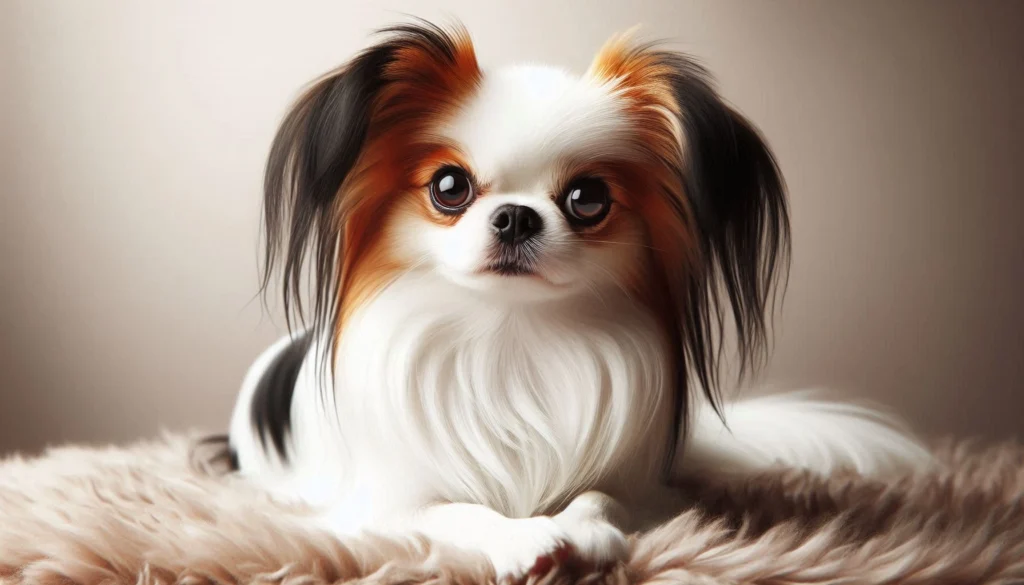
The Japanese Chin, despite its name, has roots tracing back to ancient Chinese and Korean civilizations. It is believed that this breed was gifted to Japanese royalty by Chinese or Korean emperors, leading to its adoption and refinement in Japan. The Japanese Chin quickly became a favorite among the aristocracy and was often found in the imperial courts.
An interesting historical fact about the Japanese Chin is its association with the Buddhist monks who revered these dogs. They were considered sacred, and their care was taken very seriously. Their journey to the Western world began in the 1850s when they were introduced to Europe and later to the United States, where they gained popularity as charming companions.
Physical Characteristics
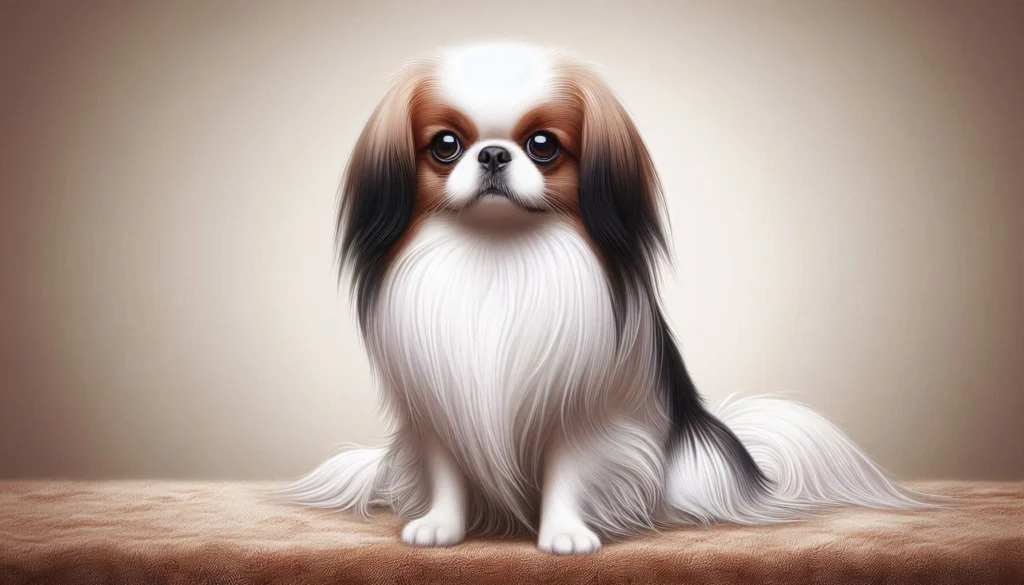
The Japanese Chin is a small, graceful dog with a distinctive appearance that sets it apart from other toy breeds.
Size
- Height: 8-11 inches (20-28 cm)
- Weight: 4-9 pounds (1.8-4 kg)
Coat Type and Colors
The Japanese Chin has a luxurious, silky coat that is straight and flowing. Their coat colors can vary, but the most common include black and white, red and white, and tricolor (black, white, and tan).
Distinctive Features
- Face: A broad, short face with a distinctive “oriental” expression.
- Eyes: Large, dark, round eyes that convey an alert and intelligent look.
- Ears: Feathered, V-shaped ears that drop forward.
- Tail: The tail is carried high and over the back, covered with a plume of long hair.
Temperament and Personality
The Japanese Chin is known for its affectionate, playful, and intelligent nature. This breed is a joy to have around due to its charming personality and loyalty to its owners.
Interaction with People
Japanese Chins are incredibly loving and form strong bonds with their human companions. They are often referred to as “Velcro dogs” because they love to be close to their owners. Their gentle and friendly demeanor makes them excellent companions for people of all ages.
Interaction with Children
Japanese Chins are generally good with children, especially when they are socialized from a young age. However, due to their small size, they should be supervised when interacting with very young or rambunctious children to prevent accidental injuries.
Interaction with Other Animals
This breed usually gets along well with other dogs and pets. Their calm and friendly nature allows them to fit in well with other animals in the household.
Health and Lifespan
Common Health Issues
Like all breeds, the Japanese Chin is prone to certain health issues, including:
- Patellar Luxation: A condition where the kneecap dislocates from its normal position.
- Heart Problems: Some Japanese Chins may develop heart conditions such as mitral valve disease.
- Eye Problems: Due to their prominent eyes, they can be susceptible to eye injuries and conditions like cataracts.
Lifespan
The average lifespan of a Japanese Chin is between 10 to 14 years. With proper care and regular veterinary check-ups, they can live a long and healthy life.
Health Tips
- Regular Vet Visits: Regular check-ups can help catch any potential health issues early.
- Balanced Diet: Feed your Japanese Chin a balanced diet to maintain a healthy weight and overall well-being.
- Exercise: While they are not highly energetic, regular, gentle exercise is essential to keep them fit and mentally stimulated.
Care and Grooming
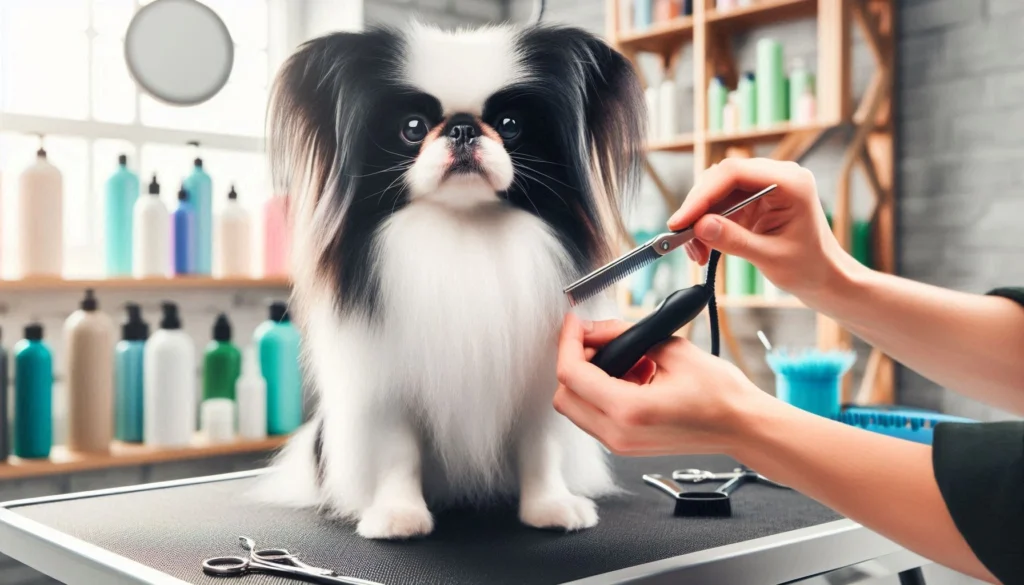
Caring for a Japanese Chin involves regular grooming, a balanced diet, and appropriate exercise.
Grooming Needs
- Brushing: Their silky coat requires regular brushing, at least 2-3 times a week, to prevent matting and tangling.
- Bathing: Bathe your Japanese Chin as needed, typically once a month or when they get dirty.
- Eye and Ear Care: Clean their eyes and ears regularly to prevent infections.
Exercise Requirements
Japanese Chins do not require intense exercise but enjoy daily walks and playtime. A few short walks and indoor play sessions are usually sufficient to keep them happy and healthy.
Dietary Recommendations
Feed your Japanese Chin high-quality dog food appropriate for their age, size, and activity level. It’s essential to monitor their weight and adjust their diet accordingly to prevent obesity.
Training and Socialization
Training a Japanese Chin can be a rewarding experience, thanks to their intelligence and eagerness to please.
Training Tips
- Positive Reinforcement: Use positive reinforcement techniques such as treats, praise, and affection to encourage good behavior.
- Consistency: Be consistent with commands and routines to help your Japanese Chin understand what is expected of them.
Socialization
Early socialization is crucial for Japanese Chins to develop into well-rounded dogs. Expose them to various people, environments, and other animals from a young age to ensure they grow up to be confident and well-behaved adults.
Potential Challenges
While generally easy to train, some Japanese Chins can be a bit stubborn. Patience and persistence are key to overcoming any training hurdles.
Suitability as a Family Pet
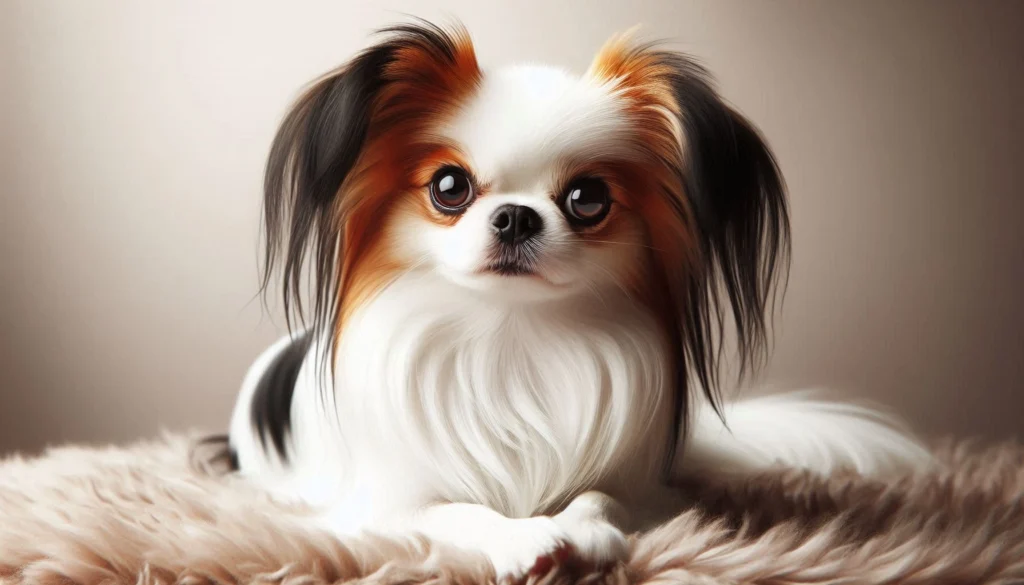
The Japanese Chin’s affectionate and gentle nature makes it an excellent choice for families. However, there are a few considerations to keep in mind:
Living Environment
- Apartment Living: Japanese Chins are well-suited for apartment living due to their small size and moderate exercise needs.
- Outdoor Space: While they do not require a large yard, they enjoy having a safe, enclosed outdoor space to explore and play.
Energy Levels
Japanese Chins have moderate energy levels. They enjoy playtime and short walks but are also content to lounge around the house. This balance makes them suitable for various lifestyles.
Fun Facts and Trivia
- Royal Companions: Japanese Chins were once the favored pets of Japanese nobility and were often given as gifts to foreign dignitaries.
- Cat-Like Behavior: Many owners note that Japanese Chins exhibit behaviors similar to cats, such as grooming themselves with their paws and perching on high surfaces.
- Unique Vocalizations: Japanese Chins are known for their unique “singing” or “chortling” sounds, which they use to communicate with their owners.
Dog Breeds Similar to Japanese Chin
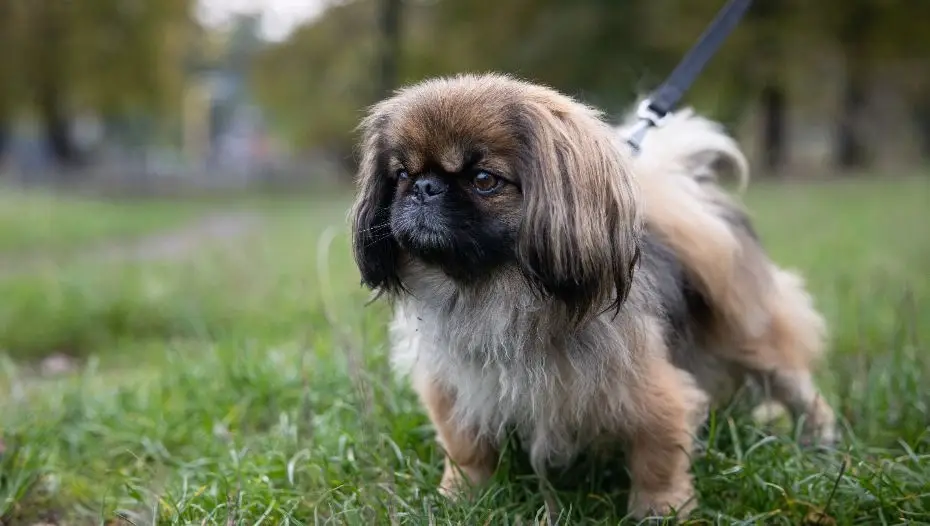
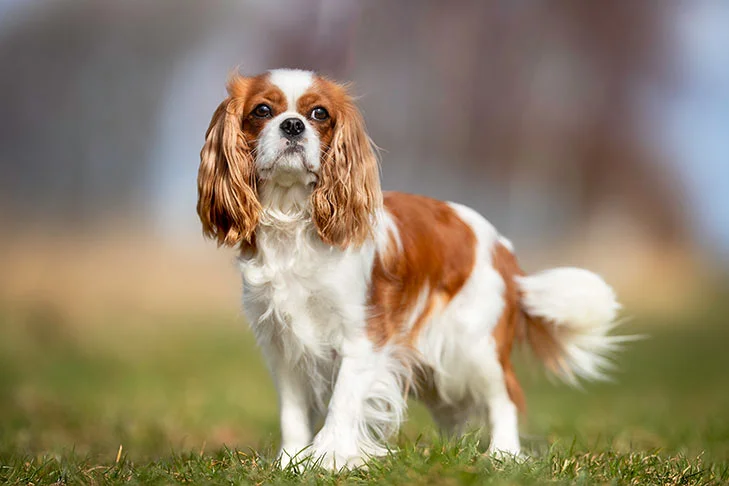
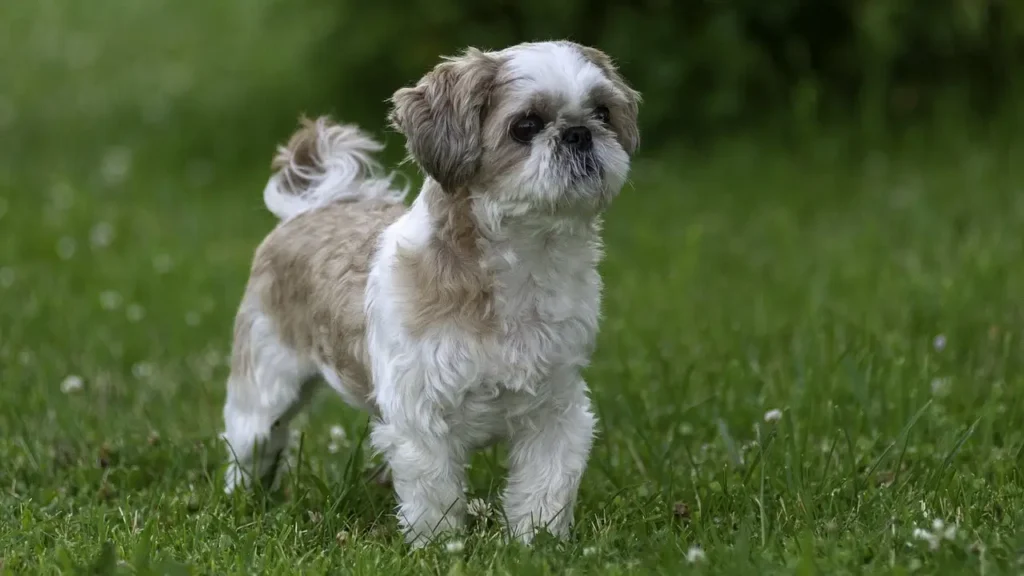
1. Pekingese
The Pekingese shares a similar history and appearance with the Japanese Chin. Both breeds have a luxurious coat, flat face, and were once favored by royalty. Pekingese dogs are known for their dignified and independent nature.
2. Cavalier King Charles Spaniel
Cavaliers are another small, affectionate breed with a sweet temperament. They are slightly larger than Japanese Chins but share a similar friendly and gentle demeanor, making them great family pets.
3. Shih Tzu
Shih Tzus are small, sturdy dogs with a long, flowing coat. Like the Japanese Chin, they are affectionate, friendly, and get along well with children and other pets. Shih Tzus are known for their playful and outgoing personality.
Conclusion
The Japanese Chin is a delightful and charming dog breed that offers a perfect blend of elegance and affection. With its rich history, distinctive appearance, and loving personality, it’s no wonder this breed has captured the hearts of dog lovers worldwide. Whether you live in an apartment or a house, the Japanese Chin can make a wonderful companion for individuals and families alike. If you’re looking for a loving, intelligent, and low maintenance pet, consider welcoming a Japanese Chin into your home.
FAQ
Is the Japanese Chin a dangerous dog?
No, the Japanese Chin is not a dangerous dog. They are known for their gentle, affectionate, and friendly nature. However, like any dog, they should be properly socialized and trained to ensure they are well-behaved.
Is the Japanese Chin the best guard dog to protect you or your family?
No, the Japanese Chin is not typically suited for guard dog duties. They are more of a companion breed and do not possess the protective instincts or physical presence required for guarding. However, they may alert their owners to strangers with their vocalizations.
